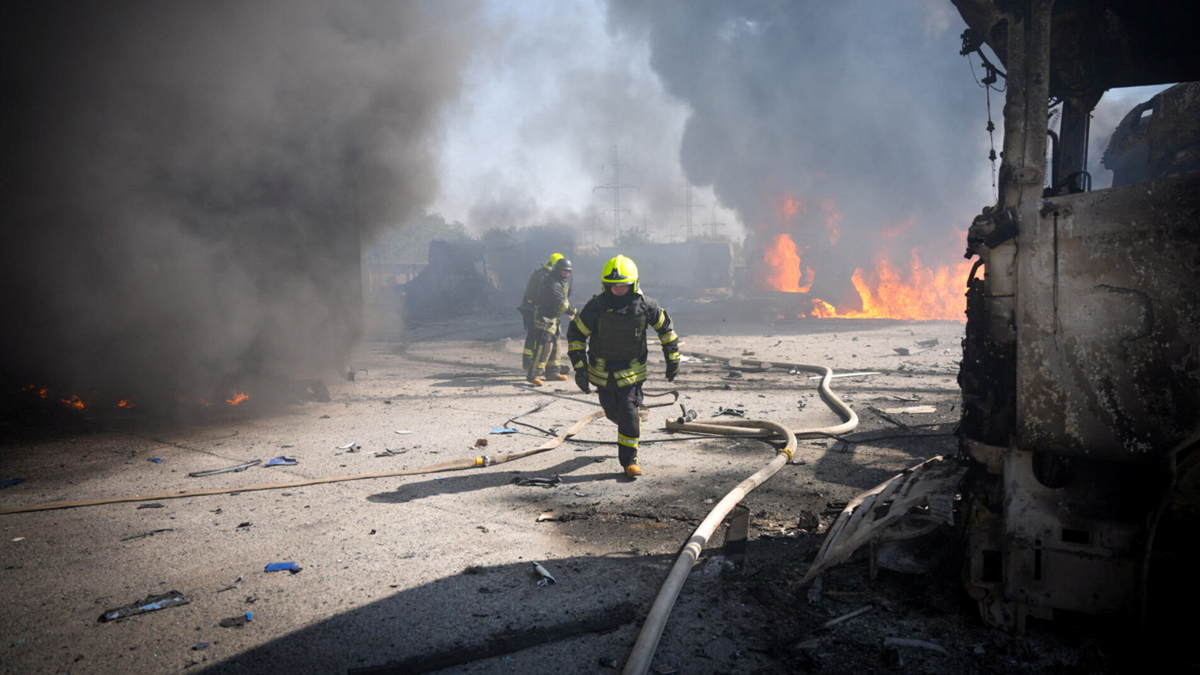Between a strong Russian offensive, and the re-election of Donald Trump as American President, the war in Ukraine hangs in the balance. Russian President Vladimir Putin has described 2024 as a "landmark year" for Russia's ambitions in Ukraine, claiming significant territorial gains and a strategic initiative. From the start, Russia has been focusing on key infrastructure and strategic locations in Ukraine. On December 13, Russia conducted one of the heaviest bombardments of the Ukraine energy sector since the war began three years ago. Russian forces are reportedly just three kilometres from the key city of Pokrovsk in the east.
Ukraine has responded by stepping up assassinations. Audaciously and precisely, Russian Lt Gen Igor Kirillov, accused of committing war crimes by authorising the use of chemical weapons, was assassinated on December 17 as a scooter loaded with explosives was remotely detonated, in Moscow just miles from Kremlin.
The Ukraine war clearly demonstrates how a conflict in Europe in the present day is not limited to the European theatre and the ramifications on global security are becoming much more evident. The Russia-Ukraine war has become increasingly global in its implications.
ALSO READ: A look at Russia's nuclear stockpile, capabilities
One of the most significant developments has arguably been the revival of Russia’s partnership with North Korea, its former Cold War ally. That relationship has intensified in recent months, from provision of millions of rounds of artillery and missiles to one formalised by a comprehensive partnership treaty, to one that now involves the direct deployment of North Korean troops in the warfront. This raises a host of questions of international significance including both for the Korean peninsula and for Europe, at a time of major global change. There is the question about the role of China, North Korea’s longtime economic lifeline and Russia’s strategic partner, providing Moscow with critical components and dual-use technology for military purposes. The other is how South Korea, which is going through its own political crisis might respond to the Russia-North Korea partnership.
Although India has maintained a position of strategic neutrality in the Russia-Ukraine war, the US state and treasury departments have sanctioned 19 Indian firms and two Indian nationals for what it terms ‘enabling Russia’s prosecution of its illegal war.’ India has consistently abstained from UN resolutions criticising Moscow.
There is apprehension in Europe about whether vital US military support for Kyiv will continue now that Donald Trump returns as President. Answering questions during a press conference on December 16, at his Mar-a-Lago club in Palm Beach, Florida, President-elect Donald Trump said Ukraine President Volodymyr Zelensky should be prepared to make a deal with Russian President Vladimir Putin to bring an end to the nearly three-year-old Ukraine war; "Gotta make a deal."
A week prior to this, in the backdrop of the reopening of Notre-Dame Cathedral in Paris, Trump met with Zelensky, in a three-way closed-door meeting hosted by French President Emmanuel Macron. Reports suggested that Zelensky indicated some flexibility to accepting a ceasefire with Russia if his country can obtain NATO membership.
The incoming Trump administration appears inclined towards bringing a swift end to the Russia-Ukraine war. Trump appointee envoy for Ukraine, Retired Lieutenant-General Keith Kellogg is scheduled to travel to Kyiv and several other European capitals in early January.
Nevertheless, uncertainty surrounds how the war might unfold. While Russia’s preeminent goal is longstanding establishment of its preeminent role in the East European security sphere, the Western policy, dominated by the approach of the US appears to have neither strategy not an end goal.
What the three year war has done is: offer an alternative globalisation strategy in the face of extensive sanctions and diplomatic efforts to isolate Russia. The Global South has taken a more nuanced stance, which is a valuable symbol of its readiness to rally against the West, and this has been particularly relevant to sanctions evasion. The loss of naval base Tartus, along with its air base in Latakia, amidst Bashar Assad’s regime collapse, is being projected as a blow for Russia’s image as a key player on the global stage. But Damascus’s future leadership might yet be willing to allow a long-term Russian military presence, in exchange for economic incentives, such as discounted refined fuel products. For Russia the deep militarisation of the economy has been manageable thus far and the lines are moving steadily westward in Ukraine, as NATO’s concerted effort begins to look like a failure.
Vaishali Basu Sharma is a security and economic affairs analyst.



